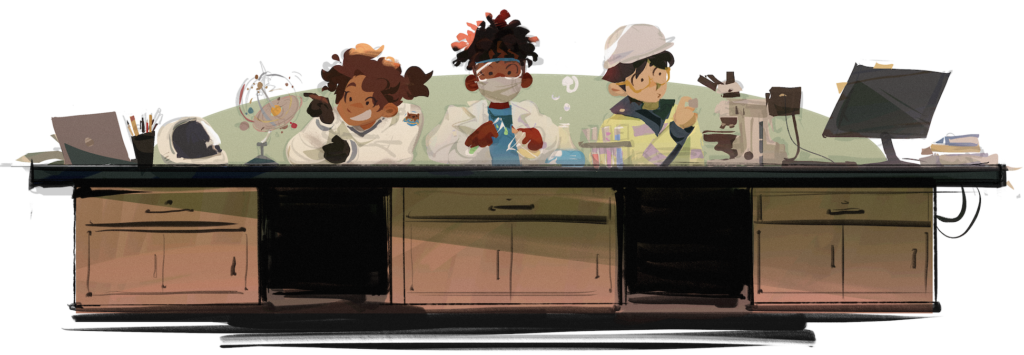
(Ko Carlos/Daily Bruin staff)
Science communication has gained increasing attention in the past few years, particularly with an uptick in scientific misinformation and distrust in scientists. At UCLA and across the UC, programs and classes have existed, some for decades and others for just a few years, to train the next generation of people who can communicate science to the public. Daily Bruin writers took a look at some of these academic programs to understand how education about science communication has grown – and where it will go next.Academics
May 27, 2024 10:02 p.m.‘A broader view’: How science communication is taught across the UC
A common stereotype of scientists is that they are poor at writing.
A quick internet search brings up a Reddit post that proclaims, “90% of scientific writers absolutely suck at writing.”
However, while stereotypes about scientists have long existed, science communication – which focuses on the translation of scientific information to a variety of scientific and nonscientific audiences – has gained more attention in recent years, especially following the COVID-19 pandemic.
By Irene Huh and Kai Nikchevich
Academics
May 27, 2024 9:53 p.m.Vaccines or ivermectin?: Students navigate disinformation dialogues in Fiat Lux 19
“Climate change is a hoax.” “The earth is flat.” “Vaccines have microchips in them.”
These beliefs persist despite having been widely rejected by scientists. During the COVID-19 pandemic, some conservative politicians promoted the use of the drug ivermectin, which is used to kill parasites, as a cure for the virus – even though the United States Food and Drug Administration did not authorize its use and the National Institutes of Health explicitly advised against it.
By Yashila Suresh
A Closer Look
May 27, 2024 9:45 p.m.From pipettes to policy, science educators advocate for change via communication
When scrolling through social media, Neha Gupta and her roommates often come across several diets. Like many college students, after seeing accounts promoting diets such as one of bacon, eggs, butter, beef, ice cream and intermittent fasting, they were confused about what to eat.
By Sam Mulick and Archi Patel
Academics
May 27, 2024 9:31 p.m.Chemical Engineering 19 teaches science communication via Wikipedia contribution
This post was updated May 28 at 5:22 p.m.
The next time a person searches the internet to research native plants or local dialects, they may encounter Wikipedia articles edited by UCLA students.
By Catherine Wang
searching for more articles...